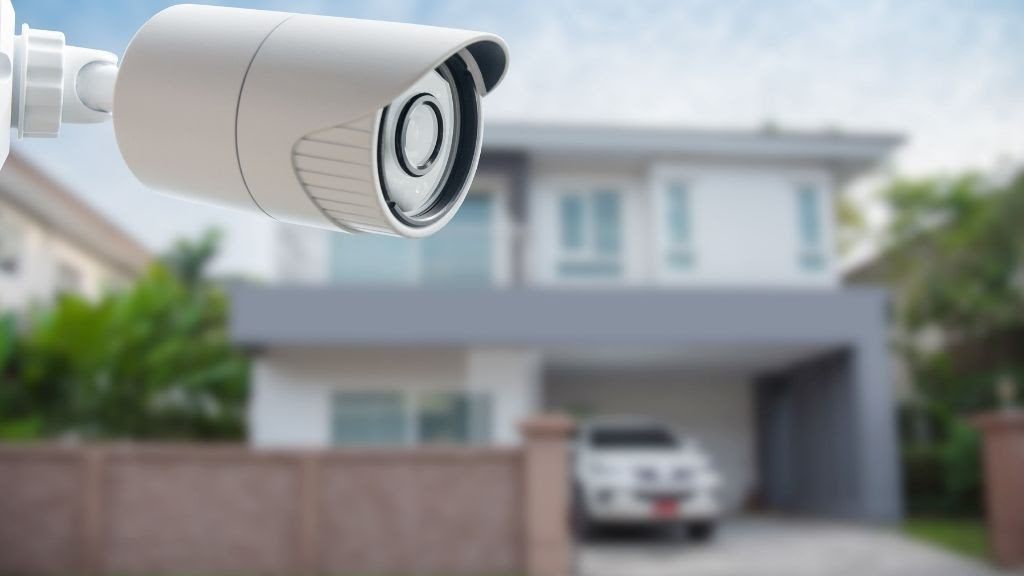Are you planning to install CCTV cameras in your home or business? If so, you’re probably wondering what exactly is CCTV and how can it help improve your security. In this blog post, we’ll be discussing everything you need to know about CCTV including its history, benefits and legal considerations when installing cameras.
History of CCTV
Closed-circuit television (CCTV) systems have been around since the 1940s and were initially used to monitor large public spaces such as railway stations, airports, and city streets. Since then, they have become increasingly popular in residential and commercial areas due to their ability to deter crime, provide evidence for investigations, and enable remote monitoring.
Benefits of CCTV Cameras
Let’s explore the benefits of CCTV cameras in more detail.
Deterrent for a crime:
CCTV cameras can act as a deterrent against potential thieves, robbers and vandals, sending a clear message that your property is being monitored and that any criminal activity will be recorded.
Improved security:
CCTV systems provide 24/7 surveillance which means burglars or other intruders can be quickly detected and apprehended.
Evidence for investigations:
CCTV footage can be used to identify suspects, provide evidence of a crime, or help aid in further investigation by law enforcement.
Remote Monitoring:
Modern surveillance systems are equipped with features that allow you to monitor your property from anywhere in the world via an internet connection.
Legal Considerations
Before you install CCTV cameras, there are a few legal considerations to keep in mind. It’s important that you check the laws and regulations of your country or region before you install any cameras as they may vary from place to place. Generally speaking, it is advised that all CCTV cameras be clearly labelled so that they are easily noticed and that individuals have been informed of their presence.
What Types of CCTV Are There?
When it comes to selecting the right CCTV system for your home or business, there are several types to choose from.
– Analog CCTV: These cameras use traditional analogue technology and record footage onto a digital video recorder (DVR). This type of camera is great for basic surveillance needs but has limited capabilities in terms of resolution and remote monitoring.
– IP CCTV: These cameras use Internet Protocol (IP) technology to transmit footage over a network or the internet, making them ideal for remote monitoring and viewing. They can also capture higher-quality images than traditional analogue cameras and record video with better clarity.
– Wireless CCTV: As the name suggests, these cameras are wireless which makes them easier to install. They are also more discreet than traditional cameras and can be linked to your WiFi network, allowing you to monitor your property remotely.
– Smart CCTV: Smart cameras are great for home security and offer features such as facial recognition, motion detection, and two-way audio. They can be connected to your smartphone or other device, allowing you to monitor your property from anywhere in the world.
How To Install CCTV Cameras
If you’ve decided CCTV is right for your home or business, the next step is to install the cameras. Depending on your needs, there are several types of CCTV systems available including wired, wireless IP cameras. Each option has its own advantages and so it’s important to do research before making a purchase. Once you’ve decided on a system, it’s important to ensure that the cameras are installed in an appropriate place and away from any potential obstructions such as trees or shrubs. When installing wired systems, it may be necessary to consult a professional electrician for assistance. If you decide to use wireless IP cameras, you may be able to install them yourself if you are comfortable with the process.
The Cost of CCTV
The cost of CCTV systems can vary greatly depending on your needs and the type of system you choose. Basic analogue cameras are generally cheaper but may lack some features compared to more advanced IP or wireless options. It’s important to shop around for the best deal and be sure to factor in any additional costs such as installation fees or maintenance plans.
More expensive CCTV systems may also offer additional features such as facial recognition, motion sensors and advanced analytics. These can be great for businesses looking to boost security or identify potential threats but they come with a higher price tag.
How To Find Out More Information About CCTV
If you’re interested in learning more about CCTV systems, there is a wealth of information available online. Reputable websites such as home security forums can provide invaluable advice and tips on selecting the right system for your needs, installing it correctly, and managing footage. Additionally, many companies offer free consultations so that you can ask any questions or discuss possible solutions. Ultimately, installing a CCTV system is an effective way to protect your home or business and deter criminals. Before taking the plunge, it is important to do some research so that you can find the right solution for your needs. We’d recommend taking a look at Avisio’s blog on ‘What is CCTV?’, here’s the link: https://avisiouk.com/blog/what-is-cctv
Tying It All Together
CCTV systems can be a great way to protect your home or business, however, it is important to understand how they work and the legal considerations involved. There are several types of CCTV systems available including analogue, IP, and wireless cameras. Before making a purchase, consider what type of system best suits your needs as each has its own advantages. Additionally, it is important to ensure that the cameras are installed correctly and in the right location. Finally, there is a wealth of information available online so make sure to do your research before making any decisions. With the right system and installation in place, you can rest assured that your property is secure. Good luck!



































